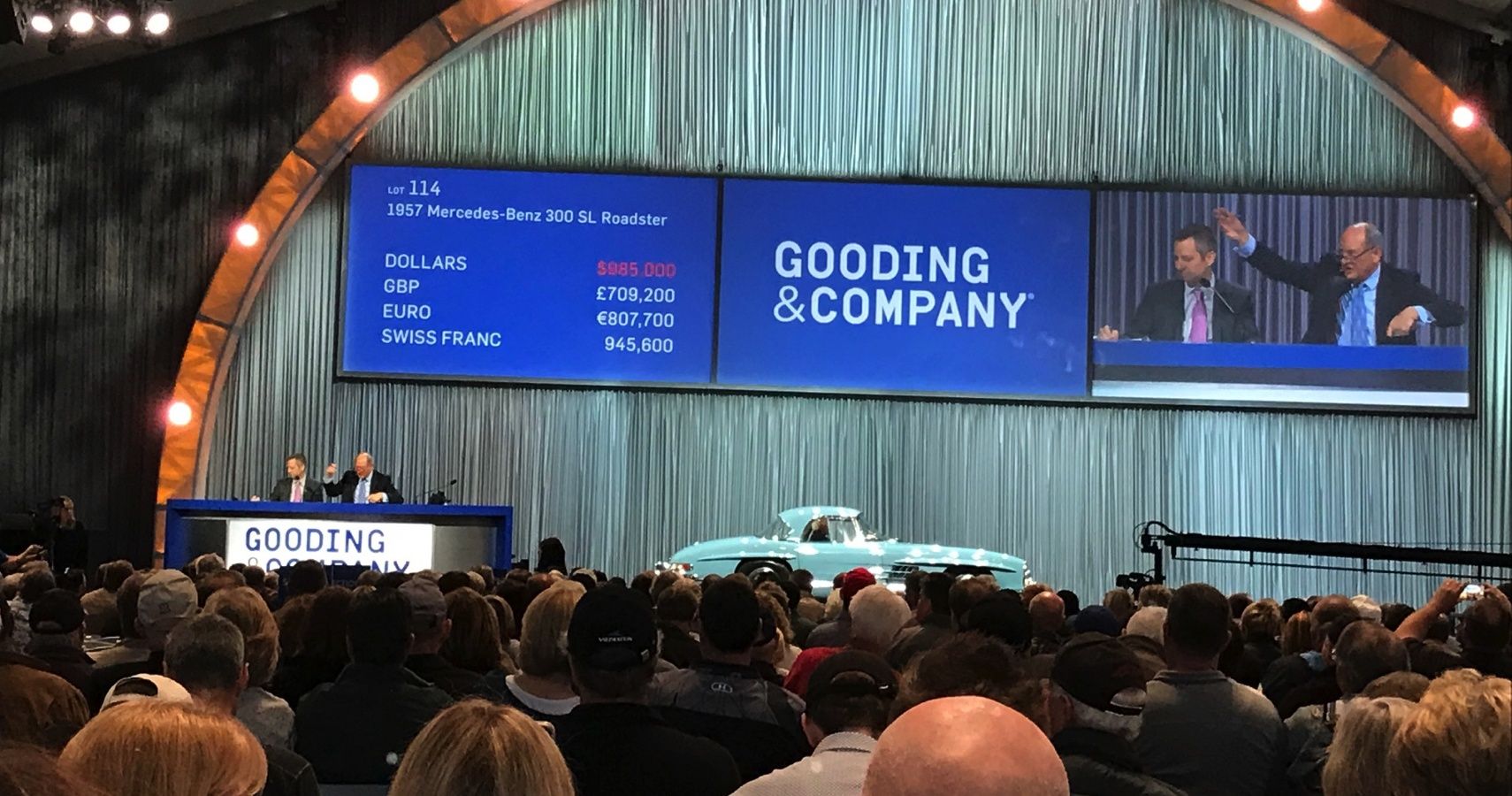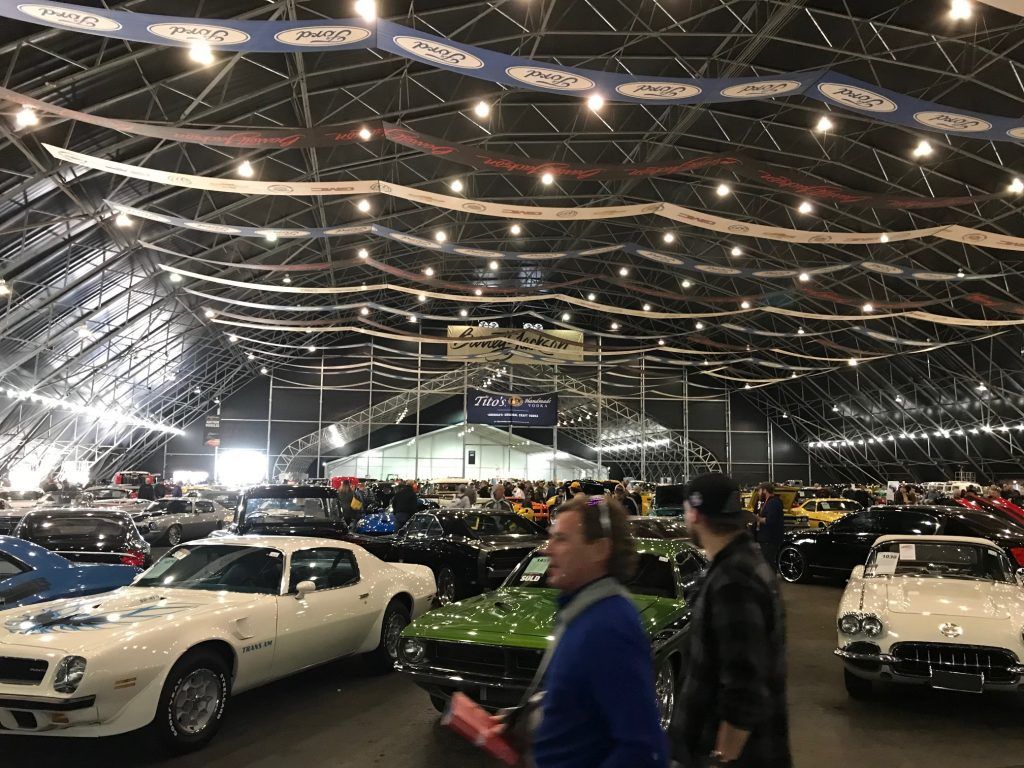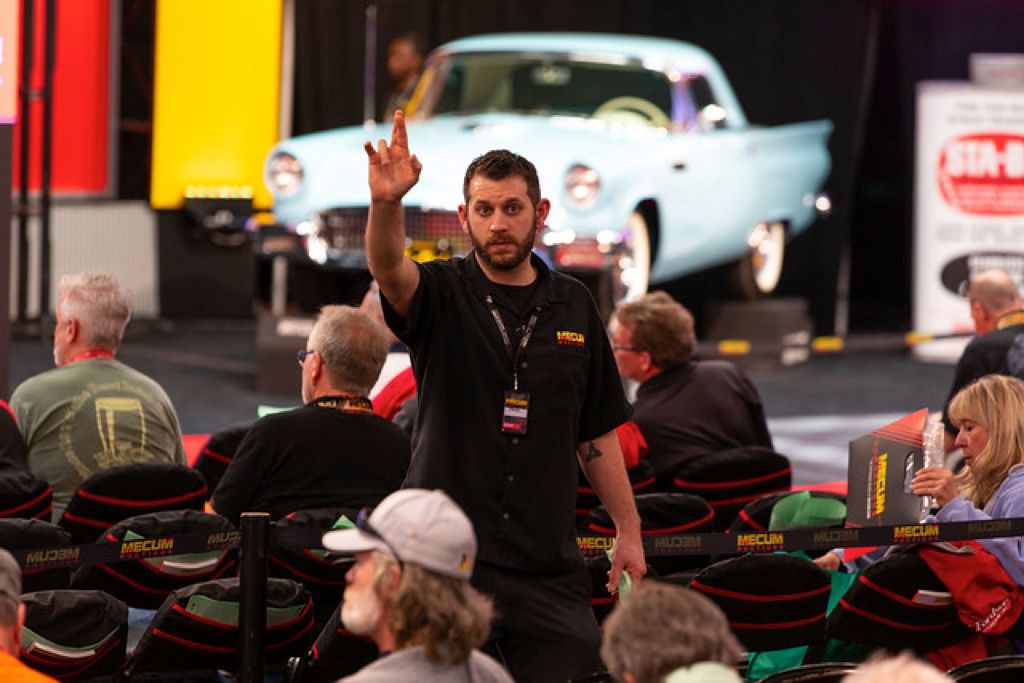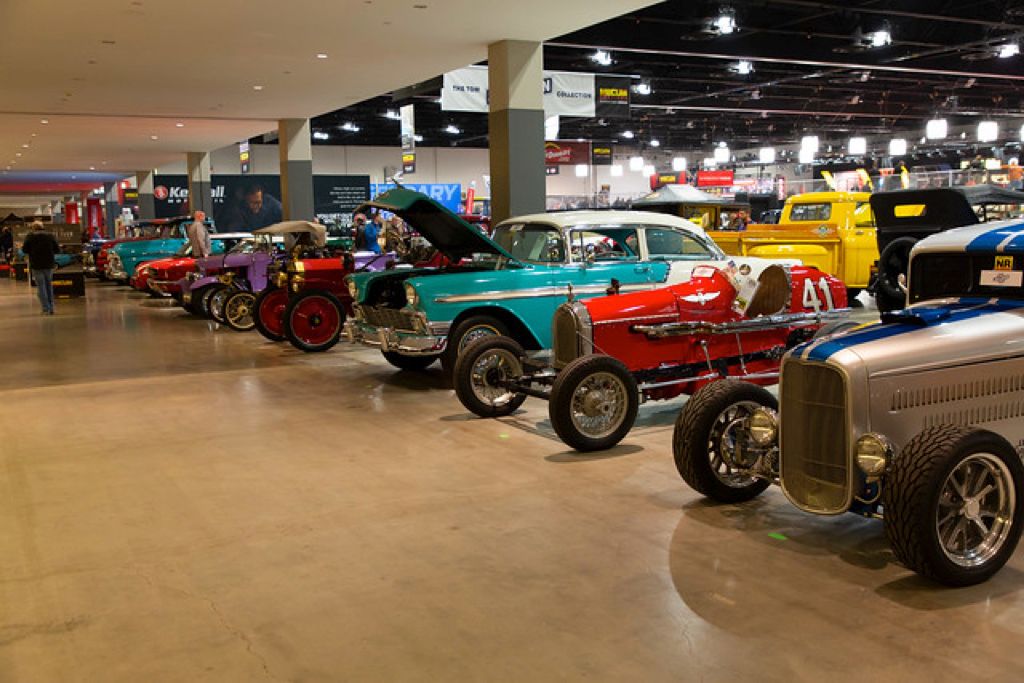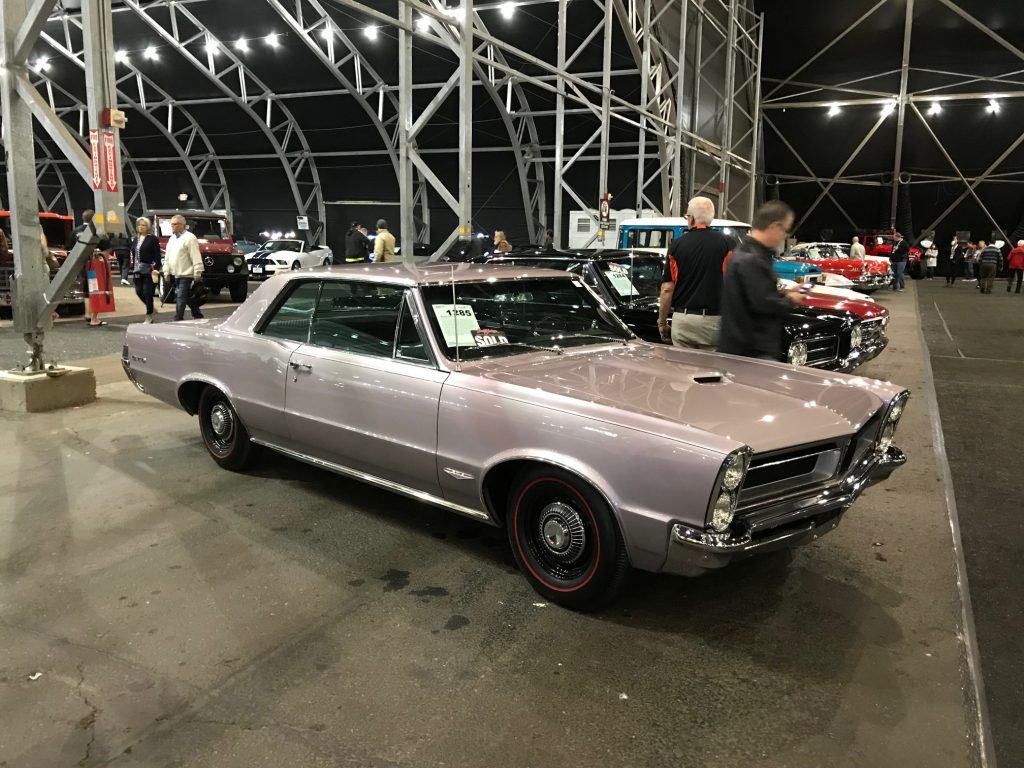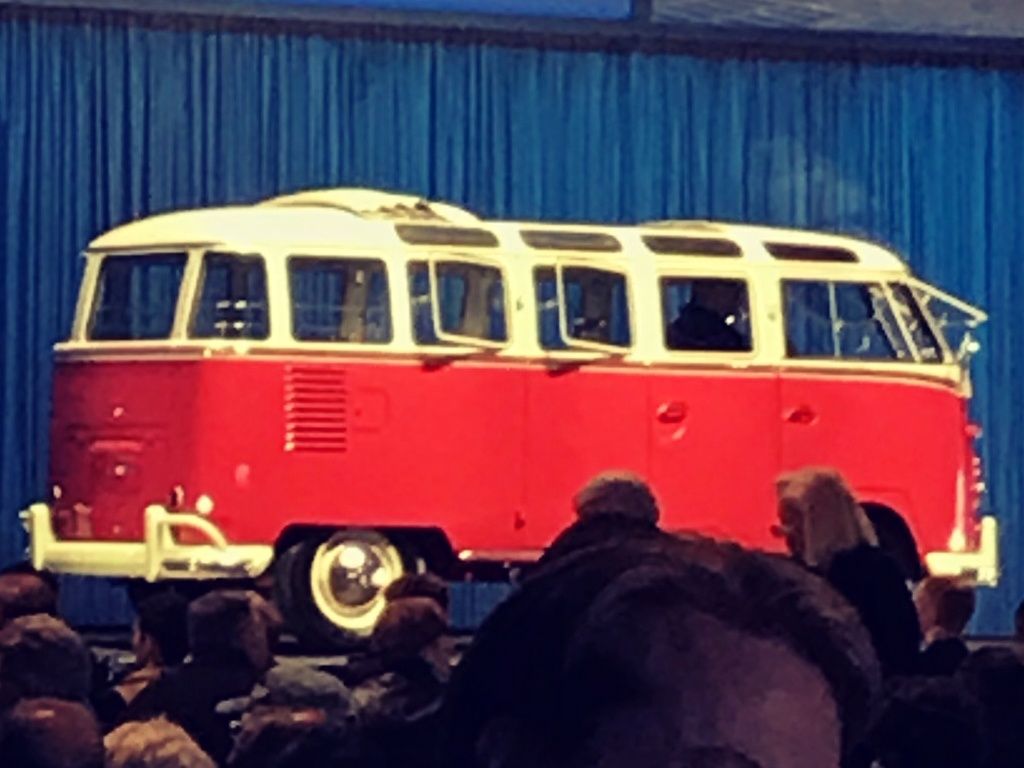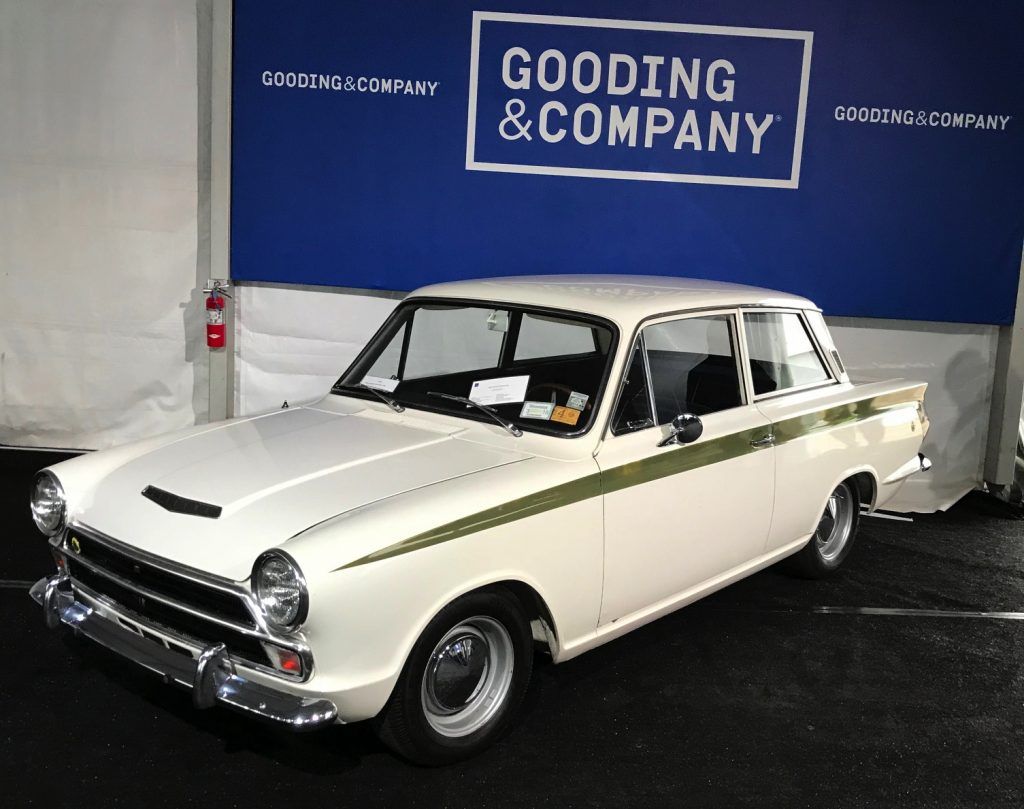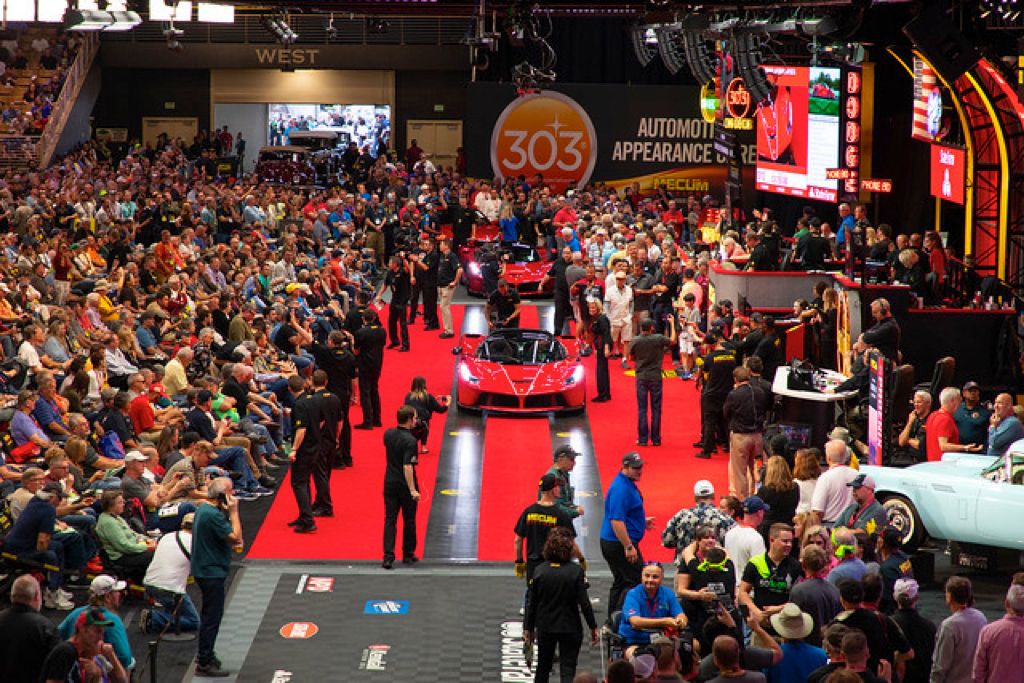It’s now easier than ever for car enthusiasts to experience an auto auction. The explosion in collector car prices and increased interest in auctions mean the bigger auctioneers such as Mecum or Barrett-Jackson have cable-TV deals and live video streaming that bring the excitement of a bidding war or a big sale into people’s homes.
If you’re thinking about going to an auction — either to buy that new-to-you ride or just to take in the atmosphere — there are some things you should keep in mind before you take the plunge.
10 Know What You Want
One of the easiest ways to wind up with a bad buy at an auction is to treat it like a window-shopping excursion. Prospective buyers who can’t assess whether a particular vehicle or price represents a good value will almost always pay too much, wind up with a bad car, or both.
Before you set foot on an auction floor, take time to research the cars you want, just as you would with any car purchase. Check the auction’s website in advance to scout potential buys, and then find out everything you can about your favorite model’s potential problem areas, pricing history and recent auction results. Use Carfax or another similar site to check the VIN for any questionable history, or to make sure the car is being accurately represented. That way, you’ll know what you’re looking at and can make the most informed bid possible.
9 Don’t Buy At Your First Auction
Watching auctions on TV or streamed online can give you a good idea of how they work. But if you’re thinking about buying at an auction, don’t do it at the first one you attend in person.
Take a seat in the gallery and watch the auctioneers and their closers. Pay attention to how they interact with prospective buyers. Get a feel for the pressure and the urgency they create to make a sale. Then, once you’ve seen how the auction’s system works, you’ll be more prepared to make bids you feel good about.
8 Set A Limit — And Stick To It
It’s asy to get caught up in the excitement of a live auction. For most bidders, at some point it becomes less about buying the car and more about “beating” the other bidder. Auction houses count on that excitement to drive up prices — and the money that ultimately goes to the owner.
That’s why it’s important to check with your preferred bank or lending institution and (especially) your spouse before going to an auction as a buyer. Away from the pressure of the auction floor, set your limit … and stick to it.
7 Don’t Be Afraid To Get Dirty
Here’s an important consideration for anyone thinking of buying a car at auction: you will (probably) not be able to drive the one you want before it goes on the block. You’ll be able to look it over while parked, and probably hear it run when it’s moved to the block, but a “shakedown” run is out of the question.
So be ready to get your hands and knees dirty. Don’t be afraid to climb in, look under the hood and crawl under the car with a flashlight to look for potential issues like leaks, rust or structural problems. For extra credit, bring a magnet to check for plastic filler covering dents and dings. That way, you’ll know whether that car that looked so good on the auction website is actually the deal you want it to be.
6 Beware The “Reserve Price”
Most collector car auctioneers don’t own the cars they’re selling. They’re basically a consignment house, selling cars and handling paperwork on behalf of the owner.
Frequently, the owner will set a price that represents the minimum amount of money they’ll take for their car. This is usually sought by owners who know their cars have a specific value … or less often, are trying to recoup money spent on restoration. The auctioneer may get the owner to waive the reserve if they sense a deal is imminent. If not, the car may still be offered for sale “off the block,” subject to negotiation with the owner. In still other cases, the car may be offered with “no reserve,” which means the car will be sold to the highest bidder, regardless of the amount. These represent the best potential for a bargain, but also could bring the most bidding competition.
5 Bring A Friend
By now, you’ve gotten the idea that auto auctions ... and really, auctions of any kind ... are high-pressure affairs where it’s incredibly easy to buy something and agree to pay more than you might have if just dealing with a private salesman.
One of the ways to protect against that is to bring a friend with you who can serve as a reality check while shopping and bidding. And, if you wind up with the winning bid, your friend is there to help you get your purchase home!
4 Yes, You Can Wave To Your Friend Across The Room
It’s a classic Hollywood trope: the main character visits an auction, waves to a friend across the room, and suddenly winds up becoming the accidental owner of a priceless work of art. Cue the laugh track, fade to black.
Don’t sweat it. Auctioneers don’t call on any bidders who haven’t already registered and demonstrated that, among other things, they’re able to fund a bid. So wave away!
3 The “Hammer” Price Is Not The Price You’ll Pay
Here’s an extreme example. The red 1960 VW Type 2 23-Window Deluxe Microbus pictured above was a crowd-pleaser at the 2018 Gooding auction in Scottsdale, Arizona. One of the final vehicles to sell on the second of three auction days, it hammered for US$200,000 … which was about twice the pre-sale estimate.
But if you look it up online, you’ll see the price was actually $220,000. That covers the commission paid to the auction house, which is a percentage of the sale price. Sometimes, especially if you’re close to a car’s “reserve” price, the auctioneer will lower their commission in order to put more money in the buyer’s pocket and close a deal.
2 Be Ready To Tow It Home
Auction cars are almost always sold “as is,” with no warranties either real or implied. And since you already know that you probably won’t be able to test it before you buy it, there’s a chance your new pride and joy might not be drivable on public roads.
That’s why you need to be ready with a plan to get it home (or to a mechanic’s shop) without driving it. Most auction companies can arrange to have your car delivered (for a fee, of course), but towing it yourself will almost certainly cost less ... and now that you own a classic car, you’ll need to start saving money to fix it!
1 Be Honest With Yourself
Buying a car at an auction — whether it’s an old police car or a resto-mod muscle car — can be exciting. And there are good deals to be had. But remember that buying an older car is more than just turning a key and taking it home. There’s frequently a lot more maintenance to be done to keep it going … and the hourly rate for an auto mechanic can start at $70-80 an hour, depending on where you live. And remember, auction cars are “as-is” purchases. If it breaks after you leave the lot, you’re likely to be without recourse.
So if you’re genuinely handy and you have a place where you can do some repair work yourself, an auction may be a good option. But if any of that makes you nervous, you may want to stay on the sidelines.

